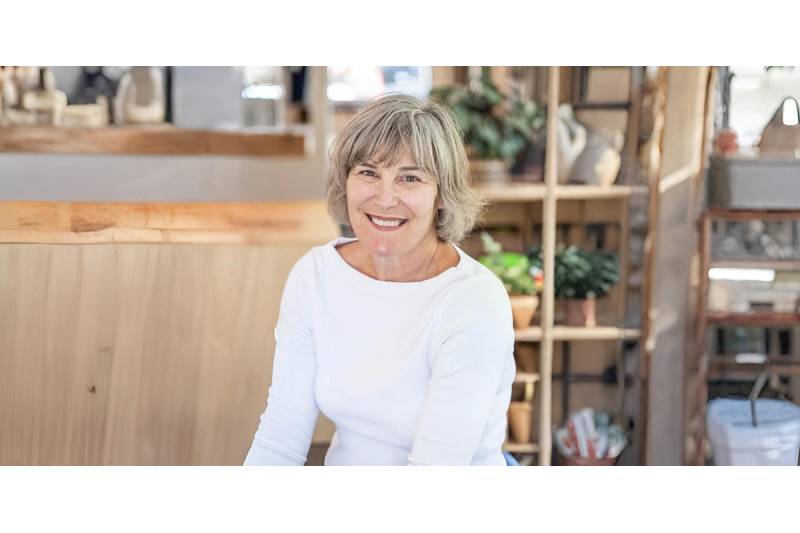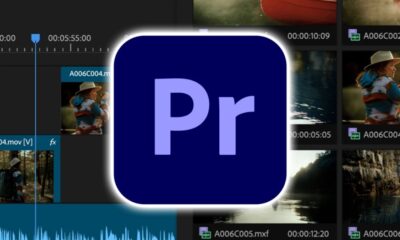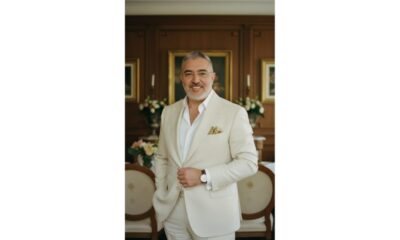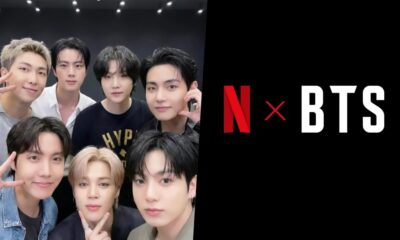Education
An Exclusive Interview With Holly Gold: The Heart and Vision Behind The Little Schools

Holly Gold shares how The Little Schools nurture curiosity, kindness, and creativity in young minds through hands-on learning and heartfelt care.
Introduction
Every great school begins with care, purpose, and belief in the potential of every child. This is the dream with which Holly Gold, founder of The Little Schools, started a community of preschools built on love, learning, and discovery. Holly’s journey began long before the first classroom doors opened. She was fascinated early with Maria Montessori. Because of this and while working with youth in San Francisco, she realized that children thrive when they are seen and understood.
Founded in 2005, The Little Schools, including Rockridge Little School, Berkeley Little School, and The Little School Approach, are places of education that are nurturing spaces where curiosity is celebrated, independence is encouraged, and kindness is a daily practice. Children explore, create, and discover through ideas drawn from Montessori, Reggio, and Waldorf philosophies. In this interview, Holly opens up about her philosophy, her years of service to children, and the joy of creating schools that honor imagination and individuality.
Q1: Holly, thank you for joining. The Little Schools have been a model for nurturing connection and creativity in early childhood education. How did your background and social work shape your vision for creating community-centered preschools?
Holly Gold: Thank you; that’s such a meaningful question. My background in social work deeply shaped how I think about early childhood education. Social work teaches you to see the whole person, not just their academic development, but their emotional world, their family context, their potential, and their community connections. When I began envisioning The Little Schools, I wanted to create environments where children, teachers, and families are seen, supported, and part of something larger. My aim was to move beyond simply teaching tasks and expand learning to engaging with each individual’s unique potential, enabling them to cultivate meaningful contributions to the world.
The social work perspective helped me recognize that strong communities don’t happen by accident; they’re built through empathy, creativity, and shared innovation. So, our schools are intentionally designed to feel like extended families. Teachers are respected as much as the children are, parents are true partners, and creativity is a natural expression of belonging. It’s about building a community where everyone thrives together.
Q2: In USA Wire, you discussed how The Little School’s approach rejects long hallways and rigid classroom divisions in favor of organic, relationship-based learning. How do these choices influence a child’s sense of belonging and curiosity?
Holly Gold: It’s always amazed me how many preschools are built around long hallways and closed-off classrooms, where siblings and friends are dropped off at the same front door but don’t see each other all day. That doesn’t make sense to me; so much happens in a shared environment when everyone can learn together.
By eliminating rigid divisions and creating one open, mixed-age school, The Little Schools encourage learning and relationships to occur naturally. Children can move freely between indoors and outdoors, explore a library, a block area, or in-depth projects, all at their own rhythm. This flexibility encourages each child’s individual interests and talents: a child who needs to run can do so without waiting for a scheduled time, while another can quietly read or build.
The children see the same teachers and peers throughout the years, creating deep familiarity and trust. They feel like they own the place… and they do. Kids grow through the same environment the way they do in life; two-year-olds, five-year-olds, and everyone in between share space and experience. We’re just allowing what’s natural to happen, instead of creating artificial divisions for the benefit of an organization.
Q3: Many early education programs focus on academic readiness, while yours emphasizes emotional intelligence and friendship as foundations for learning. Why do you believe these social dynamics are vital for long-term development?
Holly Gold: Yes, we’ve talked about this before, and it’s still fascinating how hard it can be for people to truly understand that learning, connection, and emotional well-being are one and the same. You can spend an entire year teaching a 4-year-old to read, or you can spend two days teaching a 7-year-old. Most of us believe the sweet spot lies somewhere in between. Children are natural learners; they grow and develop in a developmental timeline. Racing ahead does not help because all the stages matter. The problem begins when we interrupt that natural timeline.
When we replace creative, cooperative, and imaginative play with concepts that hold no meaning yet, we’re not accelerating learning; we’re disrupting it. Qualities like cooperation, innovation, and creative thinking must be nurtured deliberately. They are the building blocks for learning. Those are the traits that unlock lifelong success, and, ironically, they’re also the foundation for strong academic learning. As one of my favorite colleagues said, “I’m so glad we don’t spend all our time teaching academics to try to get kids into Harvard.” And yet, if our goal is to get them to Harvard, this is the way. It’s not that we don’t believe in teaching academics. It’s simply that pressuring preschoolers to memorize numbers and letters is not the way.
It is not our goal to teach children to read at our schools, and yet, many of our kids do learn to read and write at our school. They do it because it is fun and it is integrated into their play. If we are making a group project, the kids might choose to make a sign. They make books together at our central round table. Some write actual words; others are recognizable only to them. There is a very natural social developmental process that happens.
Q4: All right. Let’s do the last questions. The Little Schools are deeply rooted in their neighborhoods, fostering connection, not among children, but among families. How do you cultivate that community bond beyond the classroom and walls?
Holly Gold: Community has always been the heartbeat of The Little Schools. We’re not only creating environments where children thrive; we’re building connections that extend far beyond our classrooms. From the beginning, The Little Schools were designed to bring adults and children together, because our future depends on getting it right for these little people. When the adults around them know and support one another, children feel grounded, seen, and safe.
But our work doesn’t stop at the school door. We are active participants in the broader community, collaborating with local organizations, supporting educators, and advocating for policies that honor the developmental and emotional needs of young children. We believe early education should be a right, not a privilege. Every child deserves the chance to grow up with confidence, empathy, and curiosity, and that requires a culture that values those traits.
The goal of a Little School education isn’t just kindergarten readiness; it’s world peace. We’re nurturing humans who know how to love, connect, and care for something larger than themselves.
Q5: As education continues to evolve, what do you see as the next frontier of early childhood learning, and how are The Little Schools preparing to lead that transformation?
Holly Gold: The next frontier in early childhood education isn’t about new technology or faster academic outcomes; it’s about what truly matters: humanity, relationships, community, and innovation.
The best schools throughout history, across all communities and income levels, began with visionaries. Often, it was a parent or a small group of educators who saw a need and created something meaningful. That spirit is where true innovation happens. But as early education gained recognition and legitimacy, we saw new hurdles emerge. The field became politicized. Counterproductive hurdles became so complex that the dream of opening a small, community-based school became nearly impossible without corporate or political backing.
The irony is that in trying to elevate early education, we’ve risked losing the very heart of it: affordability and accessibility. Today, even though research consistently affirms the lifelong value of early childhood education, it’s increasingly difficult for regular people to create or sustain small, community-based schools.
As Founder of The Little Schools, I’m deeply committed to reversing that trend. I advocate for policies that make it easier, not harder, for others to create their own early childhood programs. We’re working to expand access to Little Schools and other community-driven early childhood education programs by partnering with educators, investors, and families who share this vision.
The Little School approach is rooted in the belief that children learn best in environments built on love, respect, and imagination. Our long-term goal is to help shape a future where every neighborhood can sustain schools that reflect its unique character and values… schools that raise not just students, but residents of the world.
Ultimately, my vision reaches beyond education. The goal of a Little School education is world peace, because when children grow up caring about themselves and each other, they become adults who build a more peaceful and humane world.
Conclusion
Holly Gold’s work shows that early education is about much more than academics. It is about nurturing the talent that lives in every child, helping them find joy in learning, and guiding them with love and patience. Through The Little Schools, Holly has built a family of teachers, parents, and children who care deeply about one another. She has created an environment where every child feels respected and valued. With three thriving campuses in Berkeley and Oakland, The Little Schools are spaces of inspiration for families who believe in learning by doing. Holly is setting the standard for how early childhood education should be done.
-

 Business2 weeks ago
Business2 weeks agoCorporate Social Responsibility in Action: Amerilodge’s Support of Health and Education Causes
-

 Tech3 weeks ago
Tech3 weeks agoAdobe Releases New AI-powered Video Editing Tools for Premiere and After Effects with Significant Motion Design Updates
-

 Business4 weeks ago
Business4 weeks agoSpartan Capital Publishes 2026 Economic Outlook, Highlighting Volatility, Resilience, and Emerging Opportunities
-

 Tech4 weeks ago
Tech4 weeks agoGoogle Introduces New Updates to Its Veo AI Video Generation Tool
-

 Health3 weeks ago
Health3 weeks agoFinally, an Ayurvedic Sunscreen Parents Have Been Waiting For; ShuShu Babies Gentle Sun-Care Solution for Children
-

 Real Estate4 weeks ago
Real Estate4 weeks agoCayuga Capital on Strategic Tenanting: The Key to Unlocking Property Value
-

 Business3 weeks ago
Business3 weeks agoHow Black Banx Will Power the Next Era of Financial Inclusion
-

 Business4 weeks ago
Business4 weeks agoJohn Dianastasis Elaborates on the Value of Discretion in High-Level Consulting and Public Affairs Work










